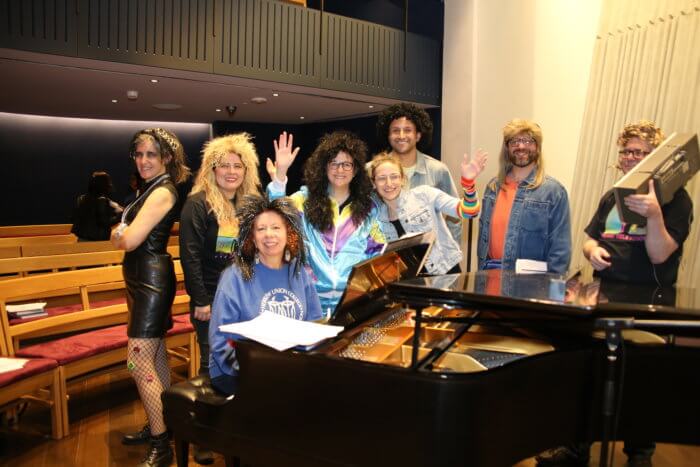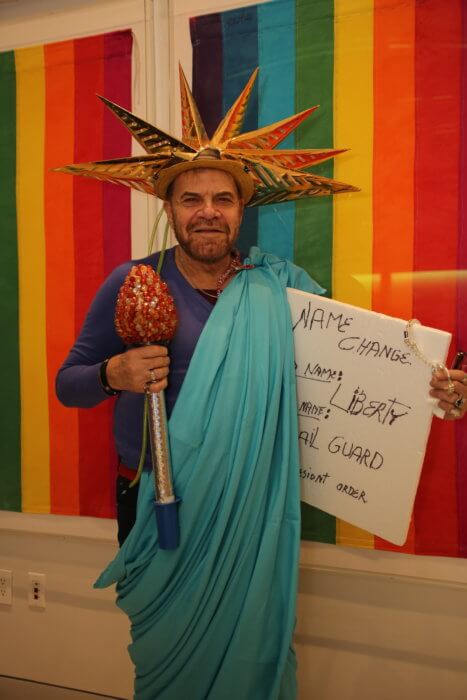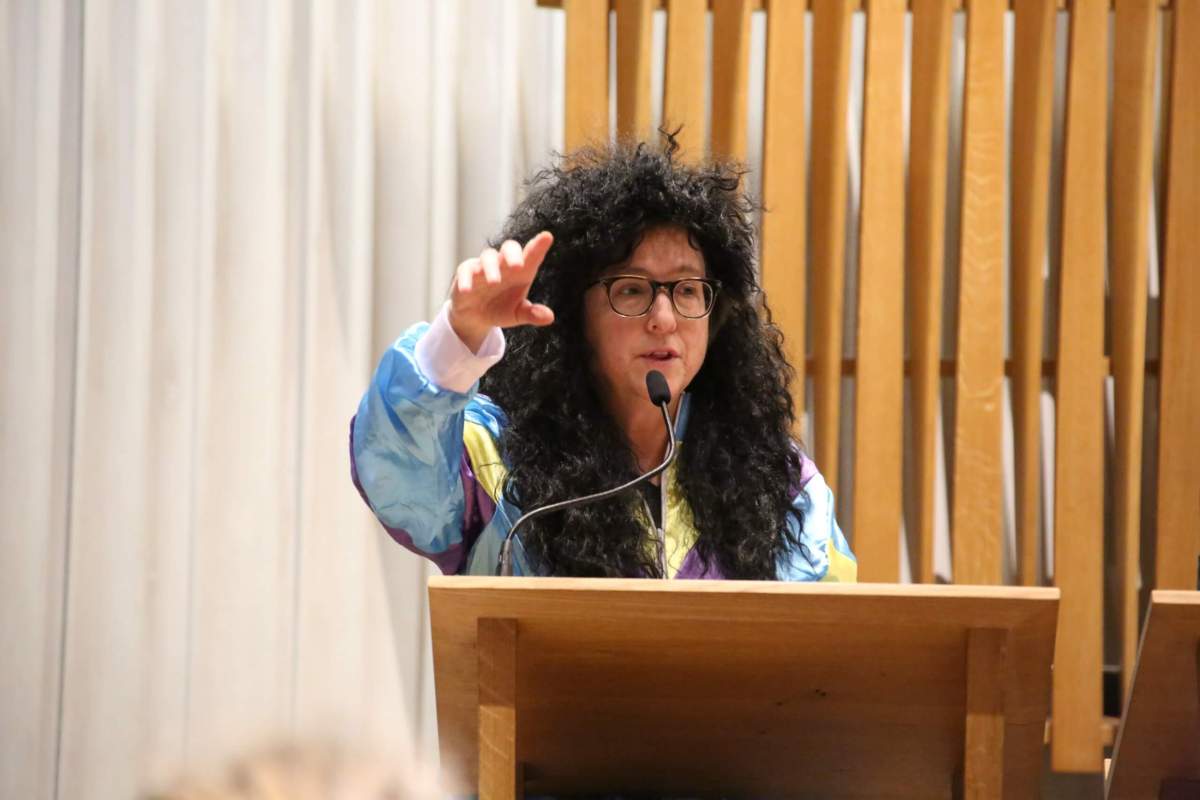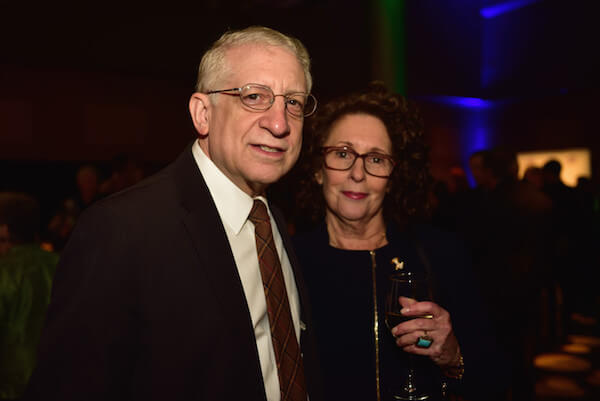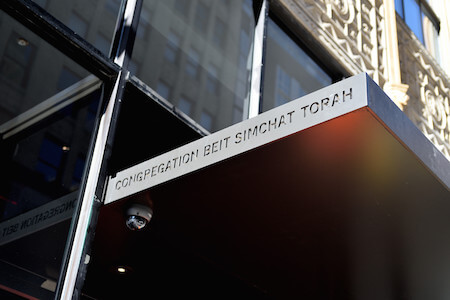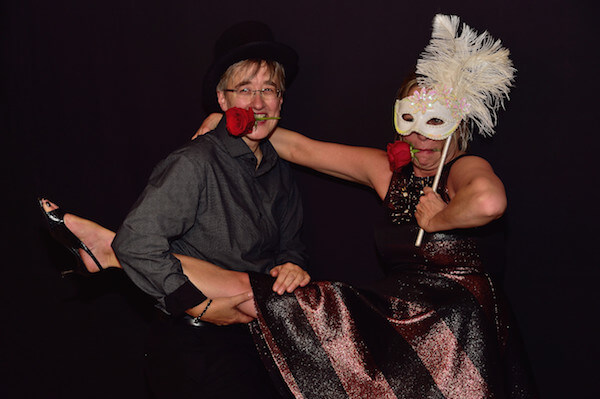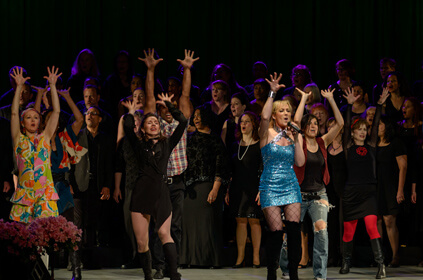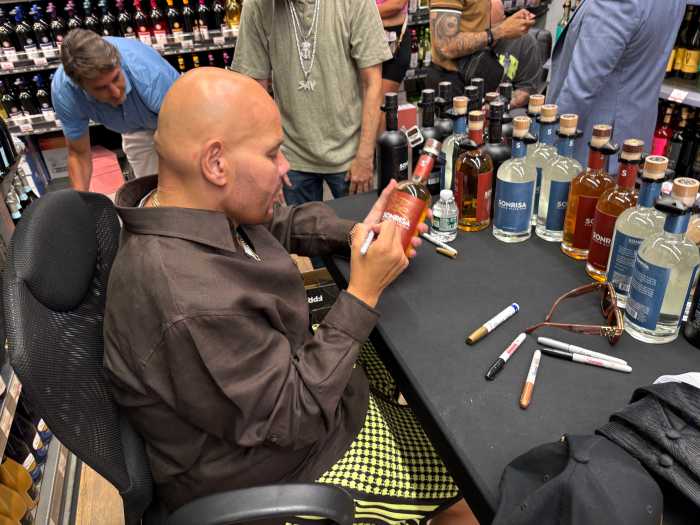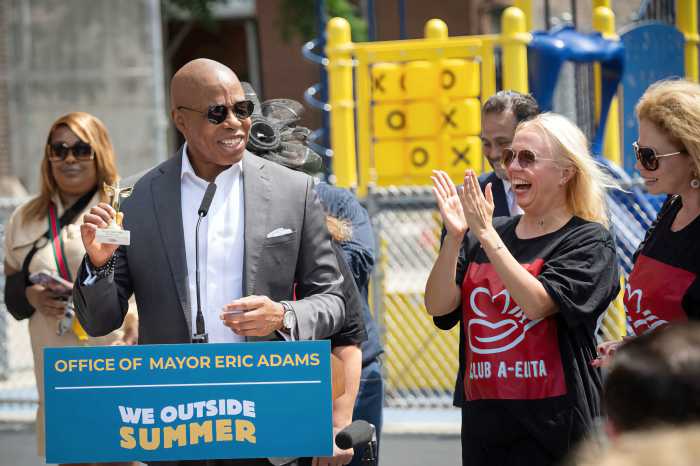The crowd might have been smaller than in years past, what with the coronavirus on the loose, but no less enthusiastic in its March 9 celebration at Congregation Beit Simchat Torah, CBST, New York’s LGBTQ synagogue.
Purim, the celebration of Queen Esther, with its lessons on coming out and revealing one’s true identity, is a tale with special meaning for the LGBTQ community. The story takes place in the Babylonian era, after Esther, raised by her wise uncle Mordechai, is chosen as a bride for the King. She keeps her religious identity as a Jew hidden until she realizes she needs to tell the King her truth in order to save the Jews from a plot by the evil royal advisor Haman.
The Book of Esther is known as the Megillah, a long and winding tale, and where the phrase, to make a Megillah of something, comes from. Part of the joy of the holiday at CBST is that congregants read passages in a variety of languages, from Yiddish to Hebrew to English, Latin, Esperanto, and more. The celebration was livestreamed this year, so those who stayed home from coronavirus worries could still watch.
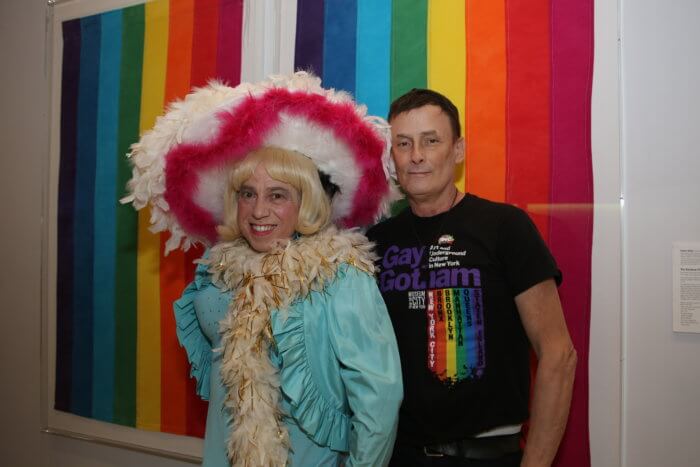
Sometimes called the Jewish Carnival, Mardi Gras, or Halloween, the holiday has a long tradition of participants dressing up in costume, drag especially. This being the Jewish year 5780, CBST’s Purim theme was the 1980s, and there were plenty of people with big heavy metal hair wigs in the crowd. These included Rabbi Sharon Kleinbaum herself, the leader of the congregation, who looked a little like Cher in the 1985 movie “Mask” in her ensemble.
The rabbi had earlier told Gay City News of the holiday’s special resonance for LGBTQ folks in her congregation and elsewhere.
“Esther means hidden,” she said, explaining that “the story plays on this question when do we — for our own safety — need to be hidden, and when must we come out for the sake of ourselves and to save our communities?”
She emphasized, that these choices “are different for everyone,” and depend on the situation.
The rabbi also added, more playfully, “We don’t need Purim for drag anymore,” another aspect that has changed overall, from the era when the holiday, as with Mardi Gras, was a safe time for such experimentation before Stonewall and other advances in LGBTQ rights.
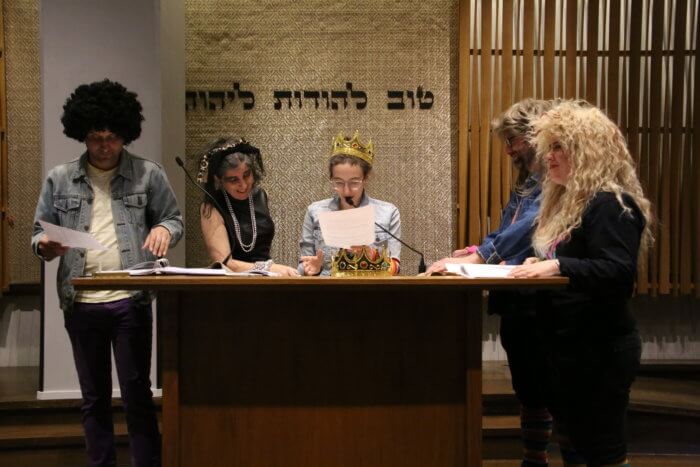
Of course, this old tradition was still there that evening, in the form of Mae West, interpreted by long time congregant Rick Landman. He was especially sultry when reading the Megillah, including recounting how Esther touched the King’s scepter, evoking the blonde bombshell’s intonation and pauses, which made for intriguing double entendres within the sanctuary. Landman, the descendant of Holocaust survivors, told Gay City News that Purim held special resonance for himself as his Hebrew name is Mordechai Sophia, a name that includes that of the Purim uncle, via his grandfather, as well as his great grandmother, murdered by the Nazis.
“My great grandmother was killed at Theresienstadt and I have no children and no one is named after her,” Landman said, explaining why he chose the combination for his own baby naming at CBST. He added that his grandmother was named Esther and his grandfather Mordechai, further solidifying the Purim tradition in the family. His grandfather had also brought over three Torahs and a Megillah from Germany in 1946 after they had survived the war, immigrating to the United States.
“Purim on that one level, the family and the history, I have that name Mordechai,” Landman explained, adding that over time, as one of the earliest congregants since the 1973 founding of CBST, he has witnessed the changing holiday tradition there. At its founding, he explained, it was a small synagogue of mostly men. Now, as Mae West and one of the few interpreting a woman that evening, he was “a remnant of when we were all young men, very few women, and no children.” He has been doing Mae West for 15 years, he said, adding he preferred not to use the word drag. At other times, he has interpreted Sophia Petrillo of “The Golden Girls,” including her famous wicker purse.
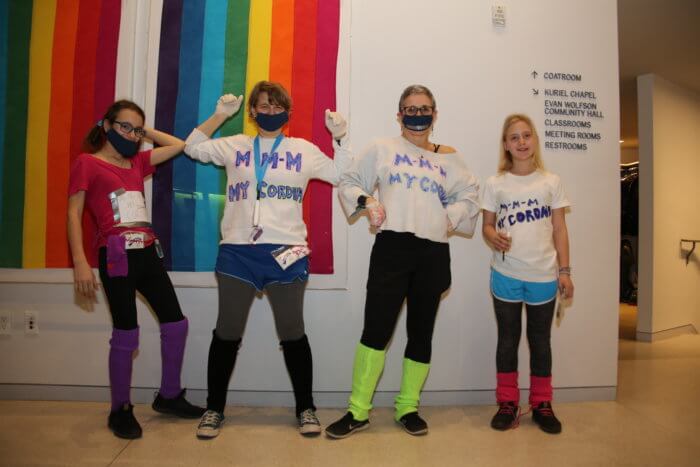
In addition to Mae West, there were others in costume, including the Aarlev family who came as the coronavirus. As “My Corona,” they played on The Knack’s song “My Sharona,” which technically dates from 1979, but was a hit through the 1980s and a creative way for a family to get into the act together. Other costumes included an elaborate Statue of Liberty, by Asaf Kimchy honoring how he first saw the statue on his arrival into New York from Israel.
Another long-time congregant, Shep Wahnon, explained the modern interpretation of the Purim story to Gay City News.
“The Megillah of Esther has been around for centuries,” he said. “It has only been recently though that gay Jews took a look at it with a queer perspective, and saw it as a kind of coming out story. The story has never been changed, but we see it through our eyes and we personalize it, and we see Esther as a role model and as a template for our coming out experience.”
